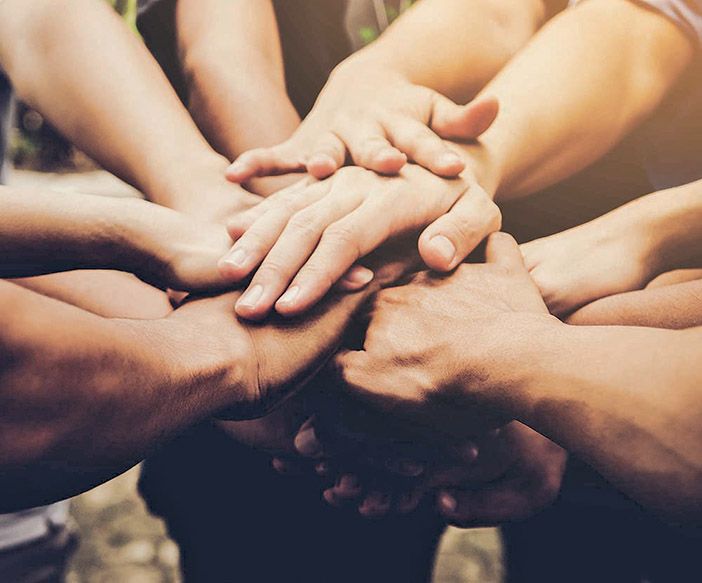
As a mentor at Prizmah’s YOULead program, I am privileged to work with current and aspiring Jewish day school leaders from around the world who focus on growth-oriented, transformational leadership. Our conference last month left me conflicted with an unmeasured balance of concern and hope.
On the one hand, it is inspiring to see the incredible accomplishments of our schools. Initiative and innovation abound. Academic exploration and advancement are at all-time highs. Learning has been transformed, becoming more sophisticated and rich. Rigor is no longer a quantitative measure of content learned, but is defined by the quality of understanding and ability to apply those lessons. Student life, culture, and activities have now become integrated parts of our collective mission and vision to create a more complete student experience.
Yet, with all of this amazing movement, there seems to be a negativity being injected at growing rates into our collective bloodstream. No matter the denomination or geographic location, nearly every leader present reported that mounting negativity threatens the very health and well-being of the schools they serve. Fear, complaints, challenges, problems, hostility, rancor and negativity. Administrators blame teachers and parents; teachers blame students, parents and administrators; students blame teachers and administrators; and parents blame all of the above.
This makes no sense. Yeshivas and schools are places of discovery and exploration, of safety and comfort. They seek to attain a near-utopian enlightenment. And yet it sometimes feels as if there is always a storm on the horizon.
Rabbi Yisrael Kaminetzky, rosh hayehiva at HALB and principal at DRS High School, recently quoted an idea from former Chief Rabbi Lord Jonathan Sacks in Parshat Teruma. Rabbi Sacks questioned why so much of the Torah is dedicated to the construction of the Mishkan, a temporary and portable structure, one that would soon be rendered obsolete. And why specifically in Sefer Shemot, known mostly for the birth of Am Yisrael?
He answers that slaves don’t have the freedom to choose how to live their lives. And so in that reality, life happens to them. Good or bad, fair or not, everything is out of their control. And so every mishap, every obstacle invites immediate, almost instinctive complaint borne in a learned helplessness. And so we read throughout Sefer Shemot about how the Jews complained. When Moshe first intervenes with Pharaoh, the workload increases and Bnei Yisrael complain. After experiencing the makkot, witnessing the torture of their tormentors, Bnei Yisrael face the Yam Suf and complain. With Hashem’s hand they emerge unharmed, just to bitterly complain again in Marah. With food running low, they complain again. Then at the ultimate climax, the pinnacle for which all of Creation had been undertaken, the Jewish people stood at Har Sinai and managed to withhold the negativity for a mere 40 days.
We experienced miracles, redemption and the destruction of our enemies. And yet we still complained. This ragtag group of tribal families enslaved to the world’s greatest power was transformed not by the makkot, the splitting of the sea or manna falling from heaven. What transformed Bnei Yisrael from being entrapped and victimized slaves to a strong, united and free people was our liberation from living lives of fate to living lives of choice. It’s when Hashem commands us to build the Mishkan, to give of ourselves, to volunteer, to act, that we can find our true fulfillment.
The lesson here is clear. When the world happens to us, when we surrender to fate, when we become passive victims, we are left with the bitterness of Marah. But when we choose to build, when we unite to create something greater than ourselves, that is when amazing happens. In those moments, when we give of ourselves—sweat, tears, love—that we can appreciate and achieve the most good.
Too often we get lost in the cycle of blame and complain. I think we’re doing OK, but we could be doing a lot better. The “me” nature of our society is antithetical to what makes us great. Let us join together now to show the next generation what it means to build. To get into the “arena” together, to partner with each other, to offer a shared vision of hope and growth, to work together to do whatever it takes to make tomorrow better than today. When we believe in the best intentions of people, play on the same team and share common goals, there is nothing we cannot accomplish together.
It is not easy, but I have yet to find something of meaning and value that is.
By Rabbi Ami Neuman
Rabbi Ami Neuman is the principal of RTMA in Elizabeth, NJ.












